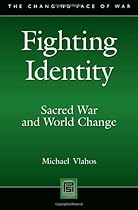|
||||
| “American Exceptionalism” appears below. Click here for the complete paper with references. |
||||
Mitt Romney, also a partisan of exceptionalism, issued a rapturous catechism and stern warning of the threat to the American exceptionalist ideal:
For Gingrich, God not only chose America; he also chose each one of its citizens in a way singular among nations: “Our guiding ethos has always set America apart”. That we are “apart” is divine token of our superiority. For Romney, God made it our destiny to lead the world, and our exceptionalism means the right to rule. Others must accept our world authority—or become enemies we punish. The definition and tenets of American exceptionalism have shifted over time. Speaking onboard the Arabella in 1630, bound for a New World, John Winthrop charged his people to make a new society wholly obedient to God’s will—and its infinite possibilities:
Winthrop spoke to the spiritual enterprise of Puritans, but also to a kernel of a new universal religious enterprise. His words may have been rooted in a small sectarian community, but here were seeds for a big new religion—an American civil religion. American politicians have long appropriated rhetoric from “church” religion for the political purposes of equally sacred civil religion. How this civil religion had grown by the 20th century was shown in electric neon in May 1941, when Franklin Delano Roosevelt declared America the world’s protector. He defined exceptionalism in redemptive terms:
FDR’s declaration: “We will accept only a world consecrated to” American constructions of freedom and democracy represents an indissoluble element of exceptionalism. This is the expectation that the fulfillment of God’s plan, through American agency, represents a modern realization of the Millennium. Civil-religious and exceptionalist rhetoric, like FDR’s, is today unthinkingly embedded by a nation whose collective faith is so deeply felt as to be almost unselfconscious. Yet the core proposition of my argument is that, when it comes to security policy, American exceptionalism in practice has undergone a disturbing metamorphosis in the last decade. Put simply, the once-and-future belief that this country is uniquely “set apart” for the greater good of humanity has morphed into a self-referential and self-seeking national shibboleth, manifest most clearly in the nation’s approach to counterterrorism. This is a radical shift from an uplifting paradigm of redeeming/transforming communities of terrorist sympathy into communities of freedom-loving democrats—and toward a dark paradigm where purging terrorists means continually flaying “the sea in which they swim” as the poisonous source of threat to the pure American body. The rhetoric of American exceptionalism is being used to legitimize and institutionalize American militarism, but ironically the substantive policy-direction in counterterrorism is in many ways a betrayal of the traditional faith-linked ethos of exceptionalism. In my view, this approach holds grave risks for America, but also tragic consequences for the wider world, especially among Muslim societies. Blood-evidence of such tragedy to come is almost prefigured in our new style of “war”—the drone-robot strike from above. In this essay, I will trace the historical antecedents of our civil religion, examine how “terrorism” is increasingly being construed as a normative existential threat to American civil-religious identity, and argue that contemporary counterterrorism policy (and the steely mindset that legitimizes it) represents a radically new and troubling brand of “exceptionalism.” Unexceptional Civil Religion American exceptionalism should be understood as the core passion of American civil religion. American exceptionalism envisions a nation rooted in a savage yet pure wilderness—“God’s American Israel”—where the act of taming its own world is in itself an act of purification, and of tempering and strengthening those who might one day redeem a corrupted and oppressed humanity. In a civil religion defined by the nation, identity is vested not in life-rules and lifestyle (as it might be for Christians or Muslims) but by utter allegiance to the civic sacred. Americanism therefore resembles more closely the mature Romanitas of the Greco-Roman imperial era. Civil Universalism Americanism seeks to unite the world under a vision of freedom and democracy. Yet this universalism does not seek an “American” world per se. The only true Americans remain those who come here and become citizens. Yet, like Rome, the United States acknowledges little “Eaglets”—other places that burn a bit of incense at the altar of the sacred words: democracy and freedom. Despite efforts to spread freedom and democracy abroad, there remains in our ethos an unbridgeable distinction between Americans-in-America and other worthy democrats among humanity. Exceptional Destiny Romans embraced their destiny. If gods had chosen Rome to rule the world—to bring order to a disordered oikoumene, to gather together the arts and sciences of Hellenism, to underwrite the good life for civilization—then the path of Romanitas was clear. America chose the same path, yet we ask worriedly: Are we Rome? Are we worthy of the divine charge we claim by anointment? Amid these doubts, the surest response is to again acclaim “Eternal Victory.” American exceptionalism demands victory. In Rome, each victory—with divine blessing—was sacredly celebrated. Romans called such events “triumphs,” and celebrations were the core rite of the Roman Senate and the Roman people. In America, we celebrate through cable television channels devoted to recalling military history and all-military movie “marathons” on Veteran’s Day, Memorial Day, and America’s other hallowed saints’ days. This is a cultural phenomenon unequalled in other countries. Romanitas had its staged-sacred triumphs; America broadcasts its liturgy of victory 24/7. Terrorism Contra Exceptionalism How can terrorist acts singularly threaten a chosen people of resplendent and undiminished warrior spirit? America’s very language of terrorism provides clues. In our imagination, terrorism is simply “evil.” Yet what makes terrorism so evil? Is it the killing of civilians? (That happens all the time in war.) Is it killing done in the name of politics or religion? (Political ideology is at the very heart of war.) What about those who are labeled “terrorist,” but whose resistance is actually nonviolent, or those who gain authority through democratic election? What about those persecuted by state regimes because of their political views or religious beliefs, those for whom justice through non-violence has not even the dream of hope? And how shall we regard those who historically took up arms against injustice rather than endure its yoke, like Boston rebels celebrating their Tea Party? For increasing numbers of Americans—particularly those who have deeply imbibed the recent militant distortions of a traditional ethos of American exceptionalism—“terrorism” is not primarily about what people do, or whether history celebrates or condemns them. Terrorism is identified as existential threat. For many Americans today, “terrorism” is about much more than any rational calculation of threats; it is about civil-religious identity. Americanism may still reign as modernity’s strongest civil religion, yet it is the religion of a people otherwise united by the weakest of tribal bonds. Benedict Anderson might have called America the ultimate “imagined community.” A nation that is also an idea must at all costs defend that idea, lest faith and thus identity fail us. American exceptionalism is that idea, and terrorism is our religion’s very antithesis. In American civil-religious thought, terrorism is the Devil himself. If a challenged state regime uses anti-terrorism as national theater to shore up political strength, characterizing the threat as primitive and savage to orchestrate popular passion, then success may strengthen political authority. But Americans need no orchestration by a cunning state. Even small acts of violence against the American idea—including those most driven by injustice—we instantly transform into mortal threats, justifying the most extravagant sanctions and the most unremitting punishment. Our visceral collective hatred toward Osama Bin Laden is culturally noteworthy as an expression once reserved, in medieval times, for demons from Hell. |

